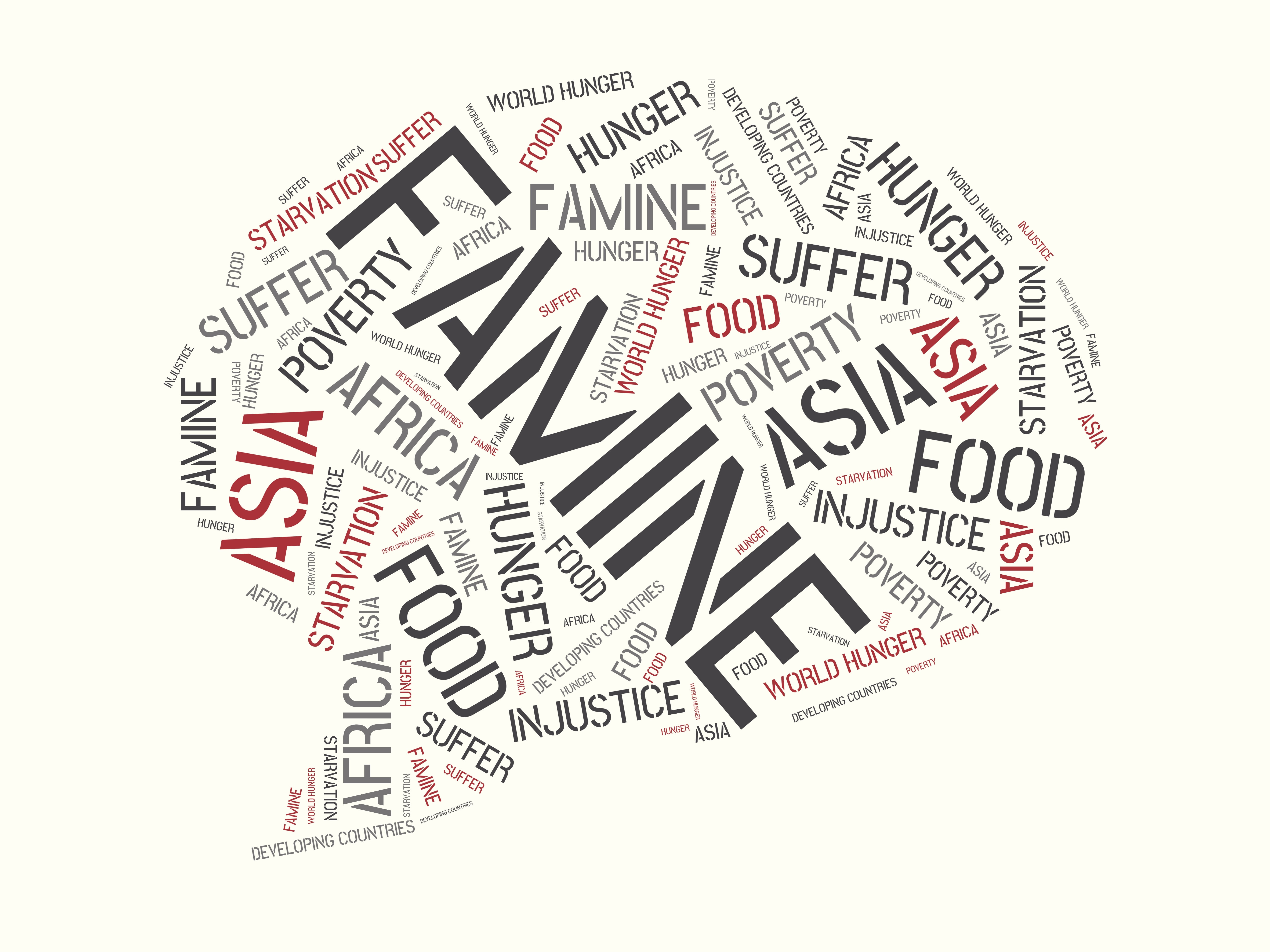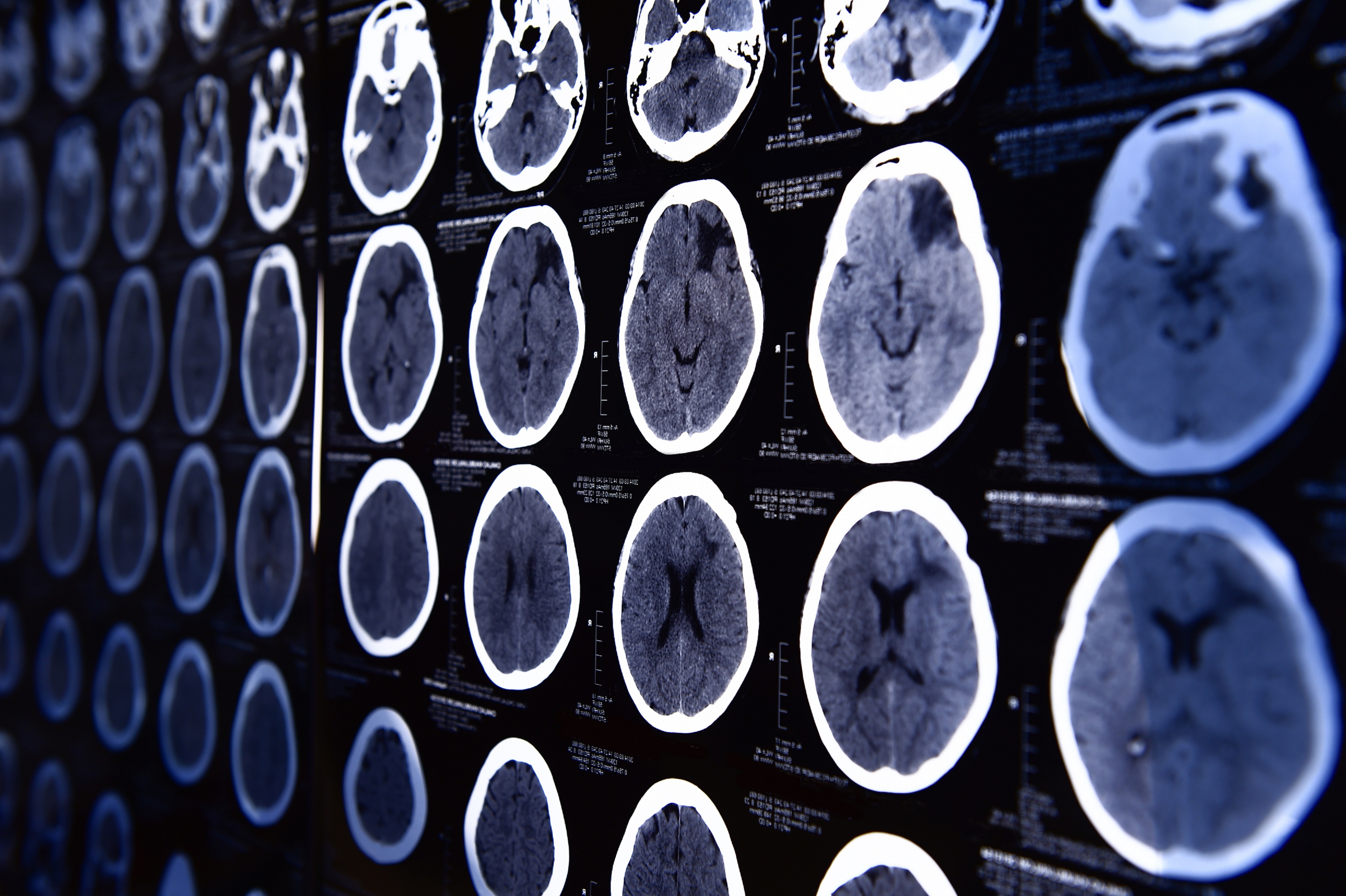Environmental risk factors
Environmental risk factors include various prenatal and perinatal stressors, infectious agents, childhood and adulthood trauma, advanced paternal age and substance misuse. There have also been increased rates of schizophrenia in migrants and in particular ethnic minority groups. The strength of association between non-genetic factors and the subsequent development of schizophrenia is still largely unknown and the interaction effects between genetic and non-genetic factors vary from person to person.
Image: ©freshidea – stock.adobe.com

Adult life events
What are stressful adult life events in schizophrenia? Life events that occur during adulthood are defined as particularly significant experiences that result in substantial changes to personal circumstances. These changes may be positive or they may be negative changes and can occur across all aspects of life, including health, education, employment, relationships, bereavement, housing, legal, and financial issues. What is the evidence for adult life events as risk factors for schizophrenia? Moderate quality evidence finds a medium-sized increase in recent adverse life events in people with psychosis compared to people without psychosis, measured between 3 months and 3.6 years prior….

Childhood adversity
What is childhood adversity in schizophrenia? Childhood adversities encompass a range of childhood experiences, including loss of a close relative, parental separation, bullying, physical abuse, sexual abuse, emotional abuse, and neglect. The nature, timing, severity, and duration of exposure are likely to influence mental health, however any evidence that childhood adversity directly causes psychosis or schizophrenia is controversial. Firstly, psychotic disorders may be secondary to comorbid affective, substance use, personality, or post-traumatic stress disorders, all of which have been linked to early adversities, and all are common in those with a psychotic mental illness. Another difficulty is accurately measuring childhood…

Environmental toxins
How are environmental toxins related to risk for schizophrenia? Exposure to environmental toxins can cause problems to both physical and mental health. Pollutants of main public health interest involve organic and elemental carbons, metals such as lead, polycyclic aromatic hydrocarbons, carbon monoxide, ozone, nitrogen dioxide, sulphur dioxide, and perchloroethylene commonly used in dry cleaning. Being born or raised in an urban environment has been related to a higher incidence of schizophrenia, and air pollution could be one of the explanatory factors. What is the evidence for environmental toxins as a risk factor for schizophrenia? Moderate to low quality evidence suggests…

Ethnicity
How is ethnicity related to schizophrenia? Some ethnic groups may show more or less risk for schizophrenia than other ethnic groups. Incidence refers to how many new cases there are per population in a specified time period, while prevalence refers to how many existing cases there are at a particular point in time. Differences in the incidence and prevalence across various ethnic groups can provide clues to possible causes of schizophrenia. What is the evidence for ethnicity as a risk factor for schizophrenia? Moderate to high quality evidence suggests the incidence of any psychotic disorder is greater in ethnic minority…

Family relationships
How are family relationships relevant to schizophrenia? Familial expressed emotion involving hostility, emotional over-involvement and critical comments has been associated with increased psychotic relapse in people with schizophrenia, so these traits may contribute to the development of psychotic symptoms in vulnerable individuals. Negative parental affective style involving guilt induction, over-intrusiveness and personal criticism, and a lack of clarity in communication may also contribute to increased risk of schizophrenia. What is the evidence for family relationships? Moderate quality evidence suggests a large effect of high communication deviance (lack of clarity) in parents of people with schizophrenia. Moderate to low quality evidence…

Famine
How is exposure to famine related to risk for schizophrenia? Consumption of a balanced diet during childhood aids the development of a healthy brain. This may act as a preventative factor for the development of schizophrenia in adulthood. In contrast, poor diet in childhood may increase the risk of developing the disorder. What is the evidence on famine? Moderate quality evidence suggests a small increased risk of schizophrenia in adulthood after exposure to famine in utero and/or childhood. This result was observed in regional China only as no reviews were found that assessed other regions. April 2022 Image: ©domoskanonos –…

Genetic and non-genetic risk
What is genetic and non-genetic risk? Many disorders are the result of interaction between susceptibility genes and environmental influences. One example is cardiovascular disease; people with a family history of cardiovascular disease are more susceptible to heart problems, and environmental influences, such as diet, can increase this risk. Schizophrenia is also a complex disorder that can arise from both genetic and environmental influences, although heritability estimates are around 80%. What is the evidence for genetic and non-genetic risk? Moderate to high quality evidence found large increased risk of schizophrenia in people with one or two first-degree relatives with schizophrenia compared…

Infectious agents
How are infectious agents related to risk for schizophrenia? Increased exposure to infections prior to the onset of schizophrenia has been recognised, which suggests infections may be involved in its aetiology. Potential mechanisms for this association include direct impacts of infections on the brain, immune activation, inflammatory cytokines, and alterations in the gut microbiota. This topic summarises the available evidence for the risk of developing schizophrenia following exposure to infectious agents, both before and after birth. For further information, please also see the maternal illness, infectious agents and immunological changes topics. What is the evidence for infectious agents as risk…

Latitude, climate and winter birth
How is latitude, climate and winter birth relevant to schizophrenia? For some time, researchers have observed variations in population rates of schizophrenia, with rates changing depending on the time and place of birth. For example, the prevalence rate in a given population may be increased if birth was at a higher latitude with a cooler climate. These variables are also related to variances in diet, precipitation, sun exposure, socioeconomic status and genetic factors, as well as age and gender differences. Therefore the observed relationships between rates of schizophrenia and higher latitude and cooler climates may have several related explanations. What…

Marital status
How is marital status related to schizophrenia? Being married can increase the extent and intensity of relationships, as well as increase feelings of reciprocity and sharing; all of which have been linked to a decreased risk of developing schizophrenia. Conversely, being married can increase stress, particularly if there are problems in the marriage, and stress has been linked to an increased risk of schizophrenia. What is the evidence for marital status? Moderate quality evidence suggests a small increased rate of subclinical psychotic symptoms in people who are not married compared to people who are married. There is also increased rates…

Maternal diet and body mass index
How are maternal diet and body mass index relevant to risk for schizophrenia? Consumption of a balanced diet and maintaining healthy weight during pregnancy aids the development of a healthy fetus. This may act as a preventative factor for the development of schizophrenia in adulthood. What is the evidence for maternal diet and body mass index? Moderate quality evidence suggests a small effect of increased risk of schizophrenia in adulthood after exposure to famine or nutritional deficif in utero. There are also medium-sized effects of increased risk of schizophrenia in offspring of mothers with low retinol levels during the 2nd…

Maternal illness during pregnancy
How is maternal illness during pregnancy relevant to people with schizophrenia? Maternal illness during pregnancy with diabetes, toxoplasma gondii, rubella, cytomegalovirus, herpes simplex virus and other microbes have been associated with brain and behavioural abnormalities in the offspring, and so have been investigated as possible risk factors for schizophrenia. Please also see the topic on obstetric complications. What is the evidence for exposure to maternal illness during pregnancy as a risk factor for schizophrenia? Moderate to high quality evidence suggests a small increased risk of psychotic disorders (mostly schizophrenia spectrum or non-affective psychosis) following exposure to herpes simplex type 2…

Migration
How is migration related to schizophrenia? The term “migrant” usually refers to first generation migrants; people with a foreign birth place, however some studies also include their locally-born offspring, or second generation migrants. Any association found between migrant status and increased risk of schizophrenia has stimulated a great deal of research and explanatory hypotheses, including the stress relating to migration and settling into a new country, and possible issues with discrimination. Other explanations include a tendency for at-risk individuals to migrate, and differences in underlying genetic vulnerability across cultures. What is the evidence regarding migration as a risk factor for…

Obstetric complications
How are obstetric complications related to risk of schizophrenia? Obstetric complications are a broad class of deviations from a normal course of events experienced during pregnancy, labour, delivery and the early neonatal period. Studies have attempted to investigate whether any deviation or combination of deviations are related to the subsequent development of schizophrenia. Please also see the topic on maternal illness during pregnancy. What is the evidence for obstetric complications? Moderate quality evidence found medium-sized increased risk of psychotic disorders in general (mostly schizophrenia spectrum or non-affective psychosis) following exposure to congenital malformation or polyhydramnios. There were small effects of…

Parental age at birth
How is parental age at birth relevant to schizophrenia? Advanced parental age may increase the risks for the development of schizophrenia in the offspring. Commonly offered explanations have been the occurrence of germline mutations (that is, mutations that occur in the egg or sperm) in older adults, and/or psychological factors such as experiencing parental death at a vulnerable age. Pinpointing the age at which parenthood may be associated with a significantly higher risk of developing schizophrenia could be useful knowledge for potential parents, particularly if there is a pre-existing increased genetic risk of developing the disorder (ie; family history). What…

Parental education
How is parental education related to schizophrenia? Low parental education is related to poor socioeconomic status, stressful life events, and migration. These have all been associated with increased rates of schizophrenia in the offspring. Therefore, they may explain any association found between low parental education and schizophrenia. What is the evidence for parental education? Moderate quality evidence suggests a small to medium-sized increased odds of fewer years of parental education in people with schizophrenia compared to people without schizophrenia. April 2022 Image: ©debr22pics – Fotolia – stock.adobe.com

Parental psychological factors
How do parental psychological factors relate to schizophrenia? Exposure to maternal psychological factors such as stress, depression, or psychosis during pregnancy may be linked to risk of schizophrenia in the offspring. The mechanisms by which these factors influence risk of schizophrenia is unclear, however genetic predisposition and/or inflammatory processes caused by stress during pregnancy may be involved. What is the evidence for parental psychological factors? Moderate to low quality evidence suggests medium-sized effects of increased risk of schizophrenia spectrum or non-affective psychoses following exposure to any parental psychopathology or self-reported maternal stress during pregnancy. Risk was highest with exposure to…

Sex differences
How are differences between the sexes relevant to people with schizophrenia? Sex differences have been reported in schizophrenia, including differences between sexes in the age of illness onset, in functioning, in symptom profile, and in the course of illness. This summary table assesses differences in the rates of schizophrenia between males and females as differences in incidence (number of new cases in the population at risk over a specified period of time) and prevalence (proportion of individuals who have the disorder in the population at risk at a specified time point or over a specified time period). Any sex differences…

Sibship
What is sibship? Sibship is a medical term meaning a group of individuals born of the same parents. Factors associated with sibship include birth order, number of siblings or number of births in the family, and inter-birth interval periods. It is not known how these factors may be associated with risk for schizophrenia. What is the evidence for sibship? Moderate quality evidence suggests a small to medium-sized increased risk of schizophrenia in people who had one, four or five births in their family, or in children born less than 18 months before or after their closest sibling. First birth order…

Social capital
What is social capital? Social capital is the resources available to individuals and communities through their social connections. It describes two key aspects to social relationships: (i) a structural aspect such as the extent and intensity of relationship links and activity in the community; and (ii) a cognitive aspect such as people’s perceptions of trust, reciprocity and sharing. Characteristics of social capital include community and personal networks; civic engagement and participation; local identity with a sense of belonging, solidarity and equality with other members; reciprocity and cooperation with a sense of obligation to help others and confidence in return of…

Socioeconomic status
What is socioeconomic status (SES)? SES is an economic and sociological measure of a person’s work experience and of an individual’s or families’ economic and social position relative to others. Any associations found between socioeconomic status and risk for schizophrenia has been largely inconsistent. There are many factors related to socioeconomic status which may have influence on any associations observed such as urban living, stressful life events, and migrant status. There is also a possibility that people with schizophrenia, particularly if unable to work, experience lower SES status than the general population. What is the evidence for a relationship between…

Substance use
How is substance use related to schizophrenia? Various lines of evidence suggest an association between substance use and psychosis. Experimental studies and surveys of users provide evidence that cannabis and amphetamine use can produce transient, and usually mild, psychotic experiences or recurrence of psychotic symptoms in individuals with a history of psychosis. Further, neuroimaging studies have found clear similarities between functional networks impaired by cannabis use and those known to be implicated in the pathogenesis of schizophrenia. What is the evidence for substance use as a risk factor for schizophrenia? Tobacco Moderate quality evidence finds a small to medium-sized increased…

Traumatic brain injury
How is traumatic brain injury related to schizophrenia? It is well established that traumatic brain injury increases the risk for a wide range of neuropsychiatric disturbances, however there is little consensus on whether it is a risk factor for schizophrenia. What is the evidence for traumatic brain injury as a risk factor for schizophrenia? Moderate quality evidence finds a small increased risk of schizophrenia following a traumatic brain injury, and a small to medium-sized increased risk of schizophrenia in people with a traumatic brain injury plus a family history of schizophrenia. There were no differences in these results according to…

Urban environment
What is urbanicity? Studies of urbanicity have defined exposure to urban environments in various ways either consisting of urban-rural comparisons or as defined according to population density which can include mixed urban-suburban-rural areas. The majority define urbanicity by degrees of population density, defined either as population per square kilometre or as the number of inhabitants within a defined location (e.g., capital, city, or town). Time of exposure to urbanicity also varies in different studies. Exposure may be assessed at birth, during upbringing or at illness onset. What is the evidence for urbanicity as a risk factor for schizophrenia? Moderate to…
Green - Topic summary is available.
Orange - Topic summary is being compiled.
Red - Topic summary has no current systematic review available.
